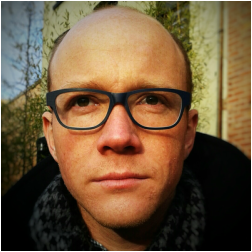Jacob Doherty is an anthropologist studying urban infrastructures and environments. His work focuses on the production of disposability as a social and material condition, and the ways lives cast as disposable are, nonetheless, lived. At the Wolf Humanities Center, he will be preparing an ethnographic monograph describing the diverse worlds of waste in Kampala, Uganda and theorizing the everyday entanglements of morality and materiality, respectability and disposability, progress and pollution. His research has been supported by the National Science Foundation and the Wenner-Gren Foundation as well as a Mellon Foundation Dissertation Fellowship at the Stanford Humanities Center. Prior to his fellowship at Penn he taught anthropology at Wesleyan University.
Jacob Doherty
Andrew W. Mellon Postdoctoral Fellow in the Humanities
2017—2018 Forum on Afterlives
Jacob Doherty
Anthropology
Stanford University, 2016
Waste Worlds: Kampala's Infrastructures of Cleanliness and Disposability
How do people, places, and things become disposable? What practices, institutions, and infrastructures allow people to inhabit, undo, and challenge disposability? Waste Worlds takes up these questions through an ethnographic study of garbage and cleanliness in Kampala, Uganda, focusing on the afterlives, as waste, of consumer goods and the afterlives, as disposable surplus populations, of those excluded from municipal visions of a clean green urban future. Garbage and garbage infrastructure provided a unique vantage point on urban inequalities because of the ways they link the most intimate spheres of social reproduction to large scale projects of urban development and transnational economies. Urban transformation is narrated as an effort to clean the city – both its physical spaces and its governmental institutions – yet technocratic transformation is achieved by criminalizing many of the routine infrastructural practices that produce cleanliness for the majority of the urban population. In the abstract, cleanliness has a nearly universal appeal in the city, but the particular techniques of cleaning are highly contested. By materializing social theories of disposability Waste Worlds offers a rigorous conceptual framework through which to describe emergent forms of urban inequality and the everyday politics that contest disposability. By theorizing the coproduction of matter and meaning through careful ethnographic attention to diverse encounters with waste, and analyzing the historical processes, structures of feeling, and norms of respectability that shape these encounters, it makes an original argument about the racialization of class dynamics and state formation in post-colonial Africa.



